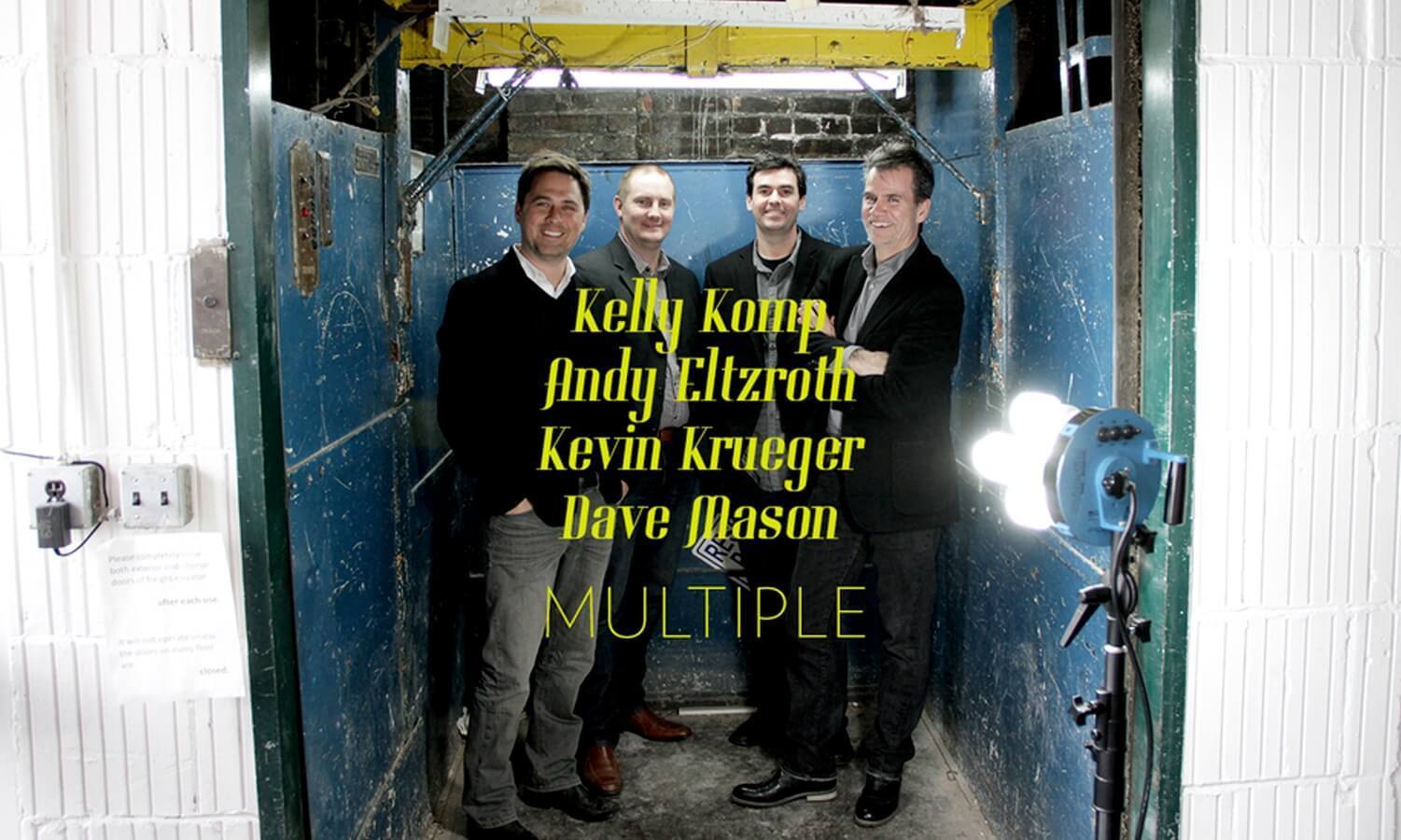Creative Process
Kevin, Dave, Kelly and Andy share their individual creative processes with Get Fueled. Get Fueled is a collection of answers for the question: What is your creative process?
First, think about the most creative thing you have made or are most proud of.
Kevin : Being part of a group that created the Cusp Conference. Why? Because it was impossible. You can’t do that. Scary. Risky. Huge. Scary. Awesome.
Dave : An impossible question to answer, akin to ‘which one of your kids is your favorite’? I’ve produced a lot of stuff I’m immensely proud of (and a ton of stuff I’m not so proud of, but let’s not talk about that right now!).
Kelly : Okay, I'm closing my eyes.
Andy : My children by far.
When you create something, do you follow a linear path? Non linear? is it fluid and organic or planned out? chaotic or organized?
Kevin : Yes. Both linear and non-linear path. Fluid and organic. Organized, then chaotic back to organized. The only thing planned out is the deadline. Creativity can is messy. Did I say chaotic?
Dave : Yes.
Kelly : Linear and organized in the sense that I try to identify the core challenge, the absolute most important thing that needs solved, or the most difficult aspect of the challenge, and start there.
Andy : Very linear focus on the problem trying to be solved. Chaotic is only when the problem is poorly defined. Drives me nuts. Unproductive and unprofitable.
How does time affect your process? Is your process fast or slow?
Kevin : Creativity speeds up exponentially as the deadline approaches.
Dave : I’m a fast learner, and having a brain full of experience probably means my hard drive processes potential solutions pretty quickly.
Kelly : Time effects process greatly. It determines ambition of outcomes. As does budget. As does resources. Etc.
Andy : Sometimes too fast but usually my initial instincts are the right ones.
Do you remember how you made things when you were young ? Has your method of creating changed or evolved over time?
Kevin : As long as I can remember, I aways looked at things differently. Imagined them being better.
Dave : Even as a kid I loved the research side of projects - learning about dinosaurs or the ancient Egyptians or whatever before creating a 2nd grade presentation was a huge part of the creative process then - and it still is.
Kelly : Yes. I remember solving challenges I mapped out for myself. Now I do it for others. Experience and repetition has enhanced my ability to discern what is important, focus quicker, come to solutions faster, and question my instincts less.
Andy : Abstract world has always been difficult for me. I always needed a goal but often let the abstract distract me. Not so much anymore.
Where or when do you feel most creative?
Kevin : Creativity comes at me all the time. Always looking, thinking, imagining.
Dave : Whenever I have a real problem to solve. And while I’m skiing.
Kelly : Group think or collaboration can serve as building blocks or a framework to a solution, but I often find creativity comes in times of isolation where early stages of ideas can get fleshed out, poked at, and codified. Then you present your conscious stream of thought to the a group. Rinse, and repeat.
Andy : Morning and when I can zone out the distractions. Having said that, I love collaborating with others, interaction is fuel.
What environment did you grow up in that helped foster your creativity?
Kevin : It’s not so much whats around you, but what’s inside. But it doesn’t hurt to have people around you support your passion.
Dave : My father was an aeronautical engineer so I grew up around a guy who knew how to imagine things that would actually fly. That was freaking awesome.
Kelly : One that placed value on hard work and following a career path that you could enjoy. Unfortunately, or fortunately, financial security wasn't on top of the values list. ;)
Andy : Positive reinforcement from teachers and my parents as a kid. A little bit of encouragement in the arts can go along way, the opposite is true as well.
Where does the initial seed come from?
Kevin : Dialog. Asking lots of questions. Understanding what it is we are trying to achieve and finding insight / inspiration though out the process from all involved.
Dave : For me, the seed of creativity can always be found in the problem itself. To paraphrase the X-Files, 'the truth is in there’.
Kelly : Listening
Andy : My dad used to paint signs and also sell advertising. But realistically it was the encouragement of my art teacher in first grade. I respected her a lot and her words meant a lot.
Whose creative process are you curious about?
Kevin : Microsoft
Dave : Congress
Kelly : Steve Jobs
Andy : Warren Buffett
